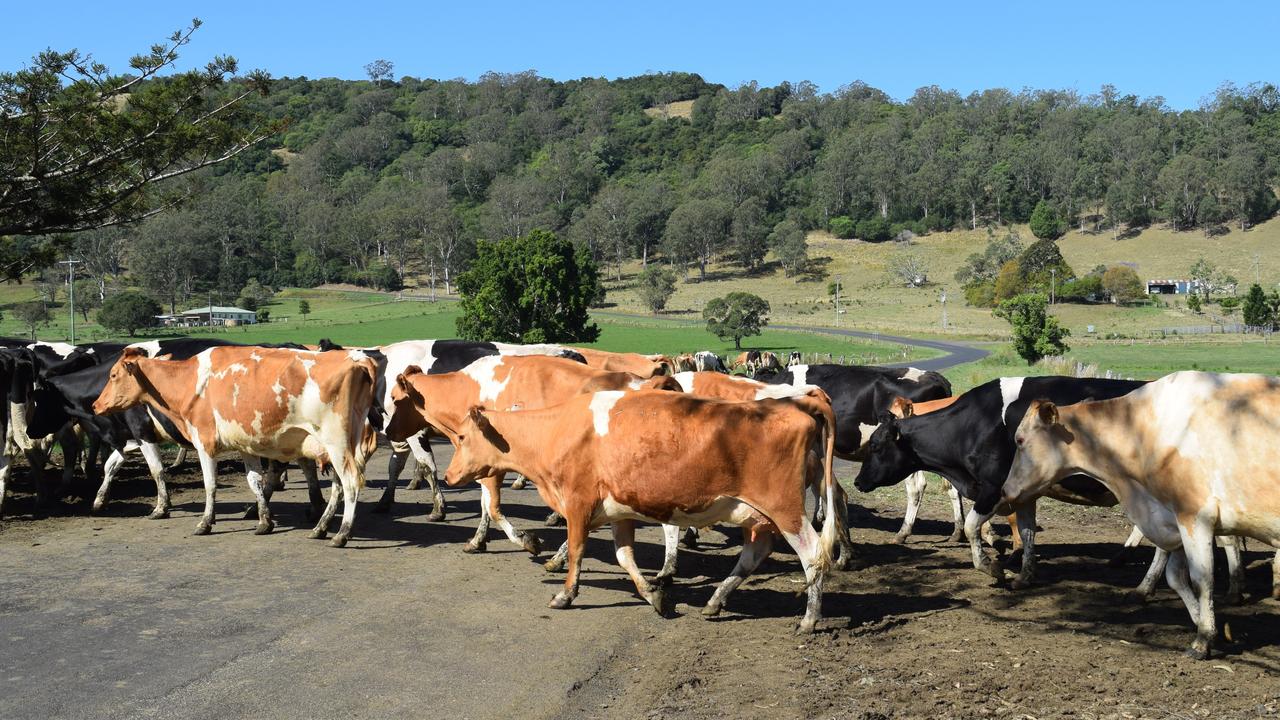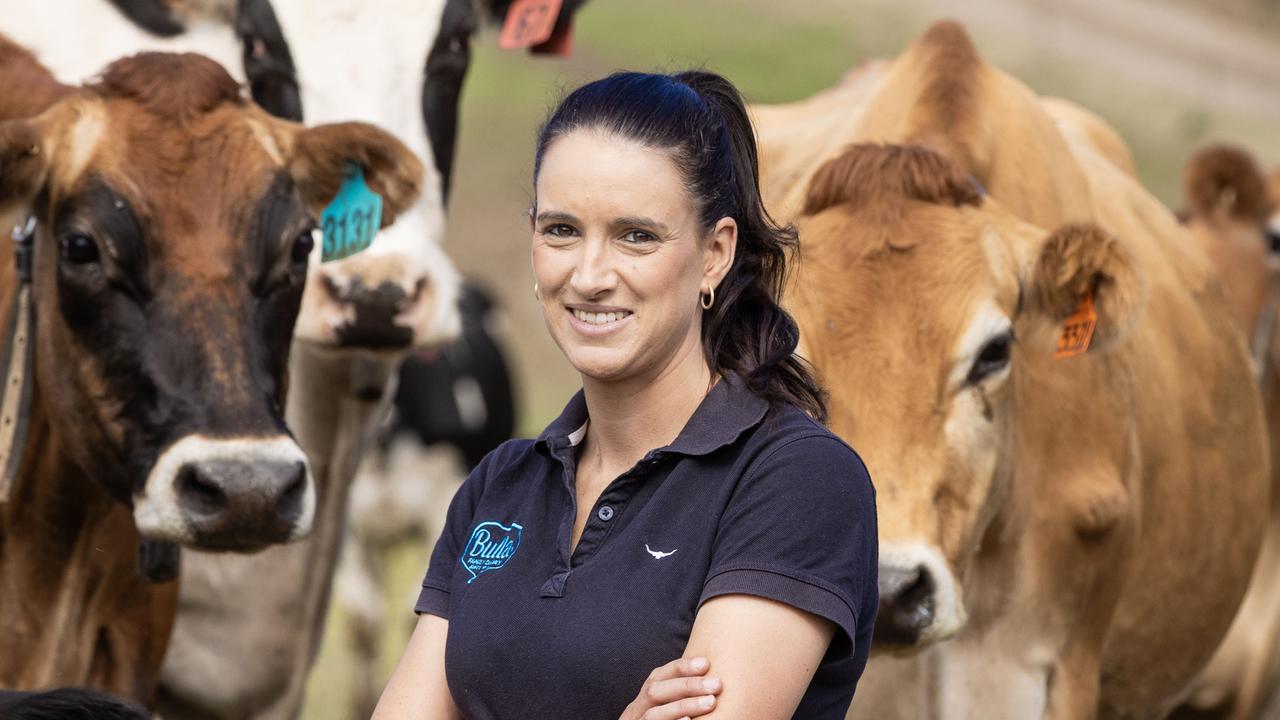The Leather Cattle Co is a thriving family farm with sustainability at its heart
The Leather family from central Queensland grew a small farm into a 5500 strong Wagyu-based herd. Their approach is turning heads.
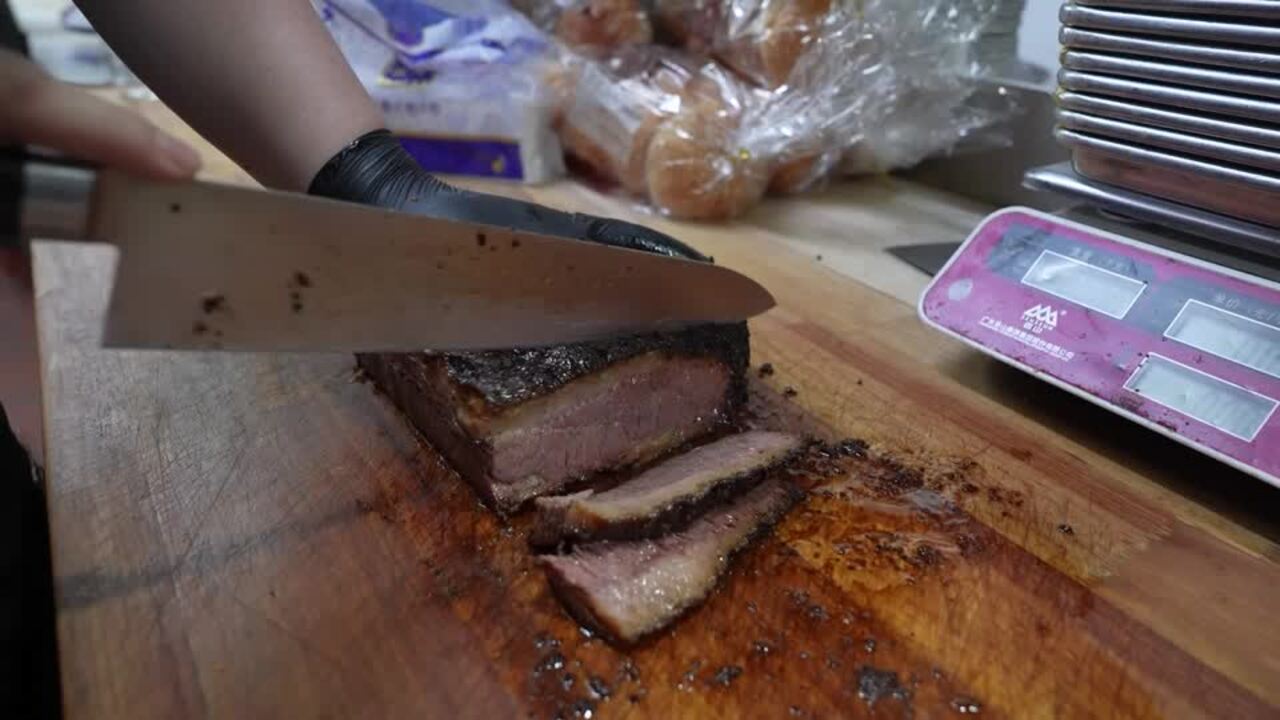
A mindset of openness to learning from others and sharing their hard-earned knowledge has been a cornerstone on which Queenslanders Melinee and Rob Leather have grown their beef enterprise.
The couple run the Leather Cattle Company with son Adam and his wife Chloe as business partners, split over three properties.
They run a tightly managed, grass-fed and EU Certified Humane enterprise, increasingly producing Wagyu for feedlots, with rigorous data collection and reporting.
Their work has been acknowledged in major international awards in recent years. But it all started on a small dairy farm, followed by decades of diligent work to build their business to the now world-leading standard.
The couple live at Barfield Station – between Theodore and Banana – where they predominantly run a backgrounding and finishing operation and some Angus cattle for an F1 program.
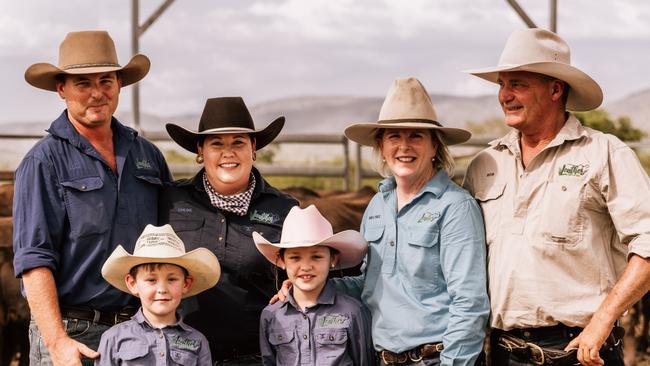
Two other properties; Hazeldean and Four Mile are breeding operations both 300km from home, towards the coast.
“Hazeldene’s going to breed full-blood registered Wagyus; we’re transitioning that herd,” Melinee said.
“We’ve got 900 breeders there and we’re about halfway; we also have a few F1 as well.
“Four Mile we’ll probably keep with Brahman-cross, but potentially eventually transition to full blood Wagyu herd.”
Melinee and Rob came into farming initially through a partnership on a property with his parents, 36 years ago.
“Rob’s family originally had a small dryland dairy west of Bundaberg, and a number of smaller blocks, and the opportunity to buy the Four Mile came up and we went into partnership with them,” she said.
“That was a really good start for us; those were the days of 20 per cent interest so it was a bit of a scary time, but we used to do a lot of things to supplement our income.”
That included milling hardwood timber sleepers for Queensland rail and mill logs, heading grass seed to send to Saudi Arabia and running a winegrape vineyard.
“We did a lot of things; any money we made out of cattle had to go back into our interest, we were trying to survive,” Melinee said.
“But for us to really grow our business, we started to take on adjistment blocks, and got some big, long-term blocks which helped build cattle numbers, and then we were in a better position when properties came up to purchase.
“Eventually we could get in a position where, with those cattle on adjistment and herd numbers, we could go for that bigger purchase and the interest rates came down a lot over those of time too.”
Now, the Leather Cattle Company runs 17,500ha with 5500 cattle.
FUTURE FOCUSED
Rob and Melinee attribute their approach to succession in their multi-generational family business from the start Rob’s parents gave them in 1988.
The purchase of the Four Mile property, at the time in partnership with Rob’s parents, was “the foundation of the business and testament to the hard work and foresight” of that generation, she said.
Their son Adam and his wife Chloe are now partners in Leather Cattle, as the business continues to evolve and grow.
Daughters Emma and Nicole pursued careers in medicine but will continue to be part of the ongoing conversation of the business succession, Melinee said.
“We appreciate the importance of careful consideration, flexibility and thorough planning for successful succession and have a really good team of people around us including solicitors, bankers and accountants – and have had several meetings with all of that team together, she said.
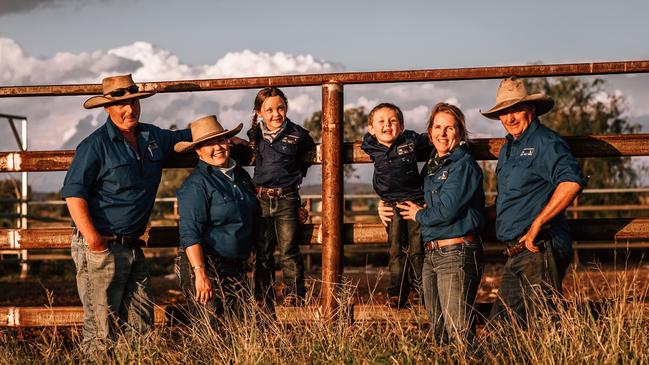
MATCHING STOCKING TO SEASONS
The Leather business was organically certified for eight years. But they have since, reluctantly, moved away from this due to pressure from ticks, and in recent years, moved into Wagyus to access premium markets.
The Leathers are big believers in benefits of the legume-grass pasture leucaena, a tolerant, deep rooted species that can access deep soil moisture and helps reduce emissions.
Cattle did well on it, gaining an average of about 1kg/day and was ideal to wean onto.
Typically, calving is from late September to early January. Finished cattle are sold before hitting two years old. Full blooded Wagyu cattle are sold to feedlots at 360-400kg.
Melinee said they were participants in the Wagyu Association’s progeny testing, helping to bring quality genetics into the herd, which was a “huge benefit”.
The shift to Wagyus came after the couple attended the annual Wagyu conference “just to have a look” three years ago.
“We were so impressed by the level of sophistication around data collection and genetics, and the marketing approach was just amazing, as well as really nice people within the Association who were very helpful, willing to share information and data,” she said.
That approach sat well with the family who had always taken an open and collaborative approach to agriculture.
“You don’t always get that back, but we felt at the Wagyu conference, wow, these are the type of people that we think we can mix – they’re very open, and sharing, and they want to improve – it wasn’t about individuals, it was about the betterment for the whole industry,” she said.
“We selected on genetics and had to be willing to pay for that to achieve for the long-term,” she said.
“We were fortunate the bank believed in our ability to do that as well.”
While there had been a bit of a downturn in the market they were “not overly worried”.
The family sell direct to processors, leveraging relationships built up when they were organic.
CARCASS GAINS
Using DNA verification, they target reproduction rates – a real strength of the Wagyus – milk, growth rates and analyse carcass data to reach MSA measures.
Recent pregnancy testing has shown Wagyus tested at 90 per cent in calf while Brahman-crosses tested at 60 per cent. Crossbreeding Brahmans also helps improve carcass traits.
Every Wagyu calf was DNA tested, which Melinee conceded was a considerable investment, but crucial to build their reputation as Wagyu producers.
Data recording and management is a key part of their family’s business with data on individual animals through their entire life cycle including body condition scores, daily weight gain, birth weight, fertility, animal health treatments, illnesses, dingo attacks, all recorded via the AgriWebb program. A satellite mapping programs also measures total standing dry matter, feed on offer and vegetation cover to give daily data for decisions on stocking rates and environmental condition.
The Leather Cattle Company was one of the first farm businesses to acquire a NAB green loan, which offers a reduced interest rate if the business meets and reports according to a set of environmental management criteria.
“We’re trying to use technology to make recording efficient, ensure integrity and make it easy for us, particularly around reporting, you can spend a lot of time getting those reports prepared.”
Having been in organics, Melinee said their data processes were established and they had long been transparent and open with their bank.
“We carry fairly high levels of debt and had to borrow a lot to get where we are, so it’s business as usual for us in terms of we expect to have to do that.”
The family was also involved with MLA’s Carbon Neutral 2030 initiative and while Melinee thinks the industry collectively will achieve the goal, emissions from individual businesses would vary, season to season. “There are a lot of things out of our control that impact that outcome,” she said.
“But if we’re doing the best we can, collectively, it contributes to that goal and that’s what we should all be aiming for.”
This included a big focus on herd productivity. Soil carbon programs were registered at Barfield, with baseline sampling complete. The practice change of planting legumes, including leucaena was underway. Fertilisers were not regularly used on their properties, or in the region generally.
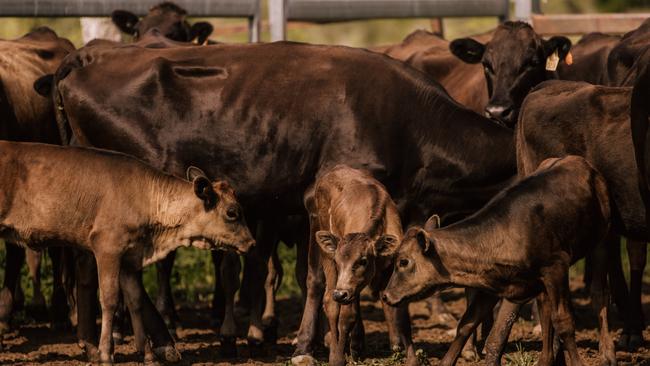
AWARD SUCCESS
The Leathers have won several major awards, and last year were recognised as one of the most sustainable cattle enterprises globally, with the The Success Through Collaboration Award.
This was announced at the Global Conference on Sustainable Beef in Uruguay, and recognised the business that best exemplified goals of the Global Roundtable for Sustainable Beef and drove collaborative efforts to advance sustainability.
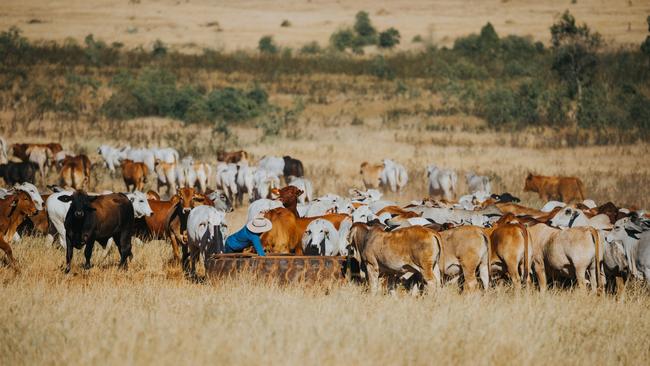
Melinee said it was a thrill to win, not for their own interests, but for “the whole Australian beef industry”.
“We’re trying to make this the best industry ever and we want we want people to come along for the ride with us.
“We don’t want customers and consumer of our beef questioning what we’re doing, we want them to say; this is such a great product because these people are going to such great lengths to make sure they look after the animals and they really care about the environment.
“If we don’t actually tell them what we’re doing and what we’re thinking and the investments we’re making, they’re never going to know, are they?”
And knowing there was always room for any business to improve was another reason the Leathers continuously involved themselves in outside projects and collected data to “identify the gaps”.
The family develops a 12 month business strategy, including a five year outlook, but Melinee described it as a living document.
Their key profit drivers were; running an efficient herd through reproductive fertility, matching stocking rate to carrying capacity, achieving the best price per kilogram via breeding Wagyus and accessing the EU market, kilograms of beef/ha and using rotational grazing.
Looking ahead, the season was dry and challenging, but they had already reduced numbers. “We try not to leave those decisions too late and try to be strategic in the management of our pastures into winter,” she said.




